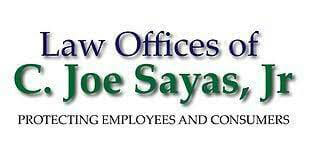
Q: I work as a housekeeper for a family in Los Angeles. I am a live-out employee and work a 12-hour shift, 7 days per week. I am paid a flat daily rate for all work hours. What are my rights?
A: If your work duties are purely housekeeping without any personal attendant work, then you are a non-exempt, hourly employee entitled to overtime pay. (A person working in a private household whose main duties are to care for children, the infirm, the elderly, and those with disabilities are considered personal attendants. Personal attendants’ rights are governed by the Domestic Worker Bill of Rights enacted in 2014.)
As a housekeeper, you must be paid one and a half times your regular hourly rate (“time and a half”) for all work beyond 8 hours per day or 40 hours a week. For all work beyond 12 hours per day or beyond 8 hours on the seventh consecutive day, you must be paid two times your regular hourly rate (“double time”). You are also entitled to one hour additional pay at your regular rate if you were not provided any of your two 30-minute uninterrupted meal periods, and one additional hour of pay at your regular rate if you are not provided at least three 10-minute rest periods.
Another issue that may arise for employees who work in private households has to do with the distinction between live-in and live-out employees. Live-in employees are those who live at the employer’s house. Live-out employees are those who go home after their daily work is done. The computation of a private household employee’s overtime hours would depend on whether the employee is live-in or not.
A live-in employee may be employed as much as 12 hours per day, provided that the employee has at least three hours free of duty during the 12 hours span of work. Such off-duty hours need not be consecutive. If an employee is required to work during scheduled off-duty hours, the household employee must be compensated at the rate of one and one-half (1 ½) times the employee’s regular rate of pay (“time and a half”) for all such hours worked.
A live-in employee must have at least 12 consecutive hours free of duty during each workday of 24 hours. If the employee is required to work during the 12 consecutive off duty hours, then the employee must also be paid time and a half for all hours worked.
A live-in employee generally must be allowed a one day off (of not less than 24 hours) after 5 consecutive days of work in a workweek. If the employee is required to work for a 6th or even a 7th consecutive day in the workweek, the employee must be paid time and a half for hours worked up to and including 9 hours. Live-in employees who worked in excess of 9 hours on the sixth and seventh workdays shall be compensated at double the employee’s regular rate of pay (“double time”).
The overtime compensation for ‘live-out’ employees is computed in the same way as that of a regular non-exempt employee who works in other occupations. This means ‘live-out’ household employees must be paid time and a half for all hours worked that are more than 8 hours in a day or more than 40 hours in a week. Hours worked more than 12 hours in a day or more than 8 hours on the 7th consecutive day must be paid double time.
Correctly distinguishing between the two groups of employees working in a household makes a difference in the employee’s ability to recover overtime. Hence, it is wise to consult with an experienced employment attorney if an employee working in a private household has questions in this regard.
The Law Offices of C. Joe Sayas, Jr. welcomes inquiries about this topic. All inquiries are confidential and at no-cost. You can contact the office at (818) 291-0088 or visit www.joesayaslaw.com. [For more than 25 years, C. Joe Sayas, Jr., Esq. successfully recovered wages and other monetary damages for thousands of employees and consumers. He was named Top Labor & Employment Attorney in California by the Daily Journal, consistently selected as Super Lawyer by the Los Angeles Magazine, and is a past Presidential Awardee for Outstanding Filipino Overseas.]

